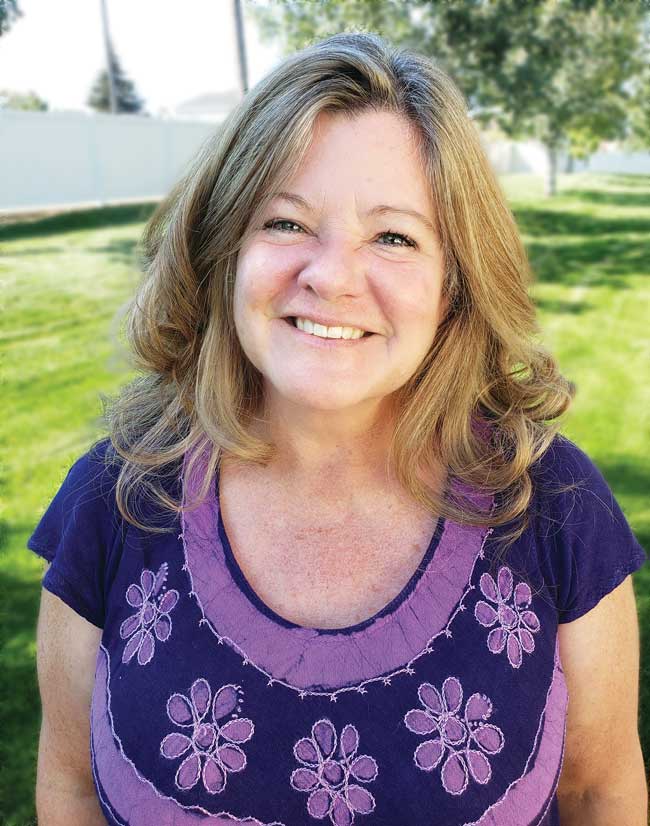Hallelujah! March is finally here! Well, at the time of this writing it’s still February, but by the time you read this it will be March. So, it’s March in my mind. I couldn’t be happier.
February is a difficult month for many. Although the shortest day of the year is December 22 when we have the least amount of daylight and longest night, this day doesn’t feel mid-winter to me. The end of December brings an adrenaline rush to many of us, energizing us with excitement through the holiday activities. I barely notice the short days and long nights. Somehow, for me, this carries through January. Is it the beauty of snow on the ground and the thrill of forecasted inches to come? Or does it just take time to come down from the December endeavors? Perhaps it’s the New Year’s Resolutions that never fail to inspire more activity.
Whatever the reason, once February arrives, it feels like the depths of deep, dark, winter. The shortest month of the year, for me, feels like the longest. Ironically, even as the days are getting longer, I feel tired in February.
This February was especially difficult for me. In mid-January, I had become sick with cold and flu-like symptoms. Suspicious of these symptoms, I took a home COVID test. The results were negative. So I powered through. I ignored my symptoms. I have a family and home to tend to. Immigrants and refugees who need me to show up to teach them English every night. Most importantly, I have a voice inside my head, let’s call the voice “Work Ethic,” that reminds me constantly that I must be productive.
About a week into powering through my illness, trying to convince myself I was feeling better every day, I realized I had lost my sense of taste and smell. I went to Urgent Care where I tested positive for COVID. Thanks to the newly revised guidelines, I had already met the quarantine requirements so I could continue to go to work.
But when I “woke up” the next morning after a full night of sleep, I could not keep my eyes open. I went back to bed and slept literally two days straight. I slept 14 hours and 16 hours at a time. I have never experienced bouts of so much sleep. For someone like me, who often suffers from insomnia and rarely sleeps a full night, this period of long sleep was disconcerting. I was plagued by guilt and frustration every time I woke briefly. What was wrong with me?
Then when I was able to stay awake, I was still plagued by debilitating fatigue. The smallest of daily activities, showering, brushing teeth, all felt like endeavors akin to climbing Mt. Everest.
I got serious. I had blood drawn and was surprised to find the lab results all perfect. I started drinking protein shakes, taking vitamins, including daily 5000 IU doses of vitamin D. I drank as much water as I could. We were blessed with a streak of unseasonably warm weather accompanied by sunshine, so I sat in the sun for long periods. I began to feel better.
Coincidentally, I came across a series of TED Talks about the importance of rest. One talk specifically addressed human hibernation. Human hibernation is a misnomer, because humans are physically unable to hibernate. The more accurate term for humans is “torpor.”
Specifically, torpor is a low metabolic state during which the body spends only the amount of energy needed to exist. I associate this with the comas induced in brain injury patients. The goal is to reduce the metabolic rate of brain tissue.
I also considered a miracle in my own family. My niece, Clare, was deprived of oxygen during birth, causing significant brain damage. There was hope. But it required a treatment that to me verged on child abuse. The newborn would spend the first three days of her life on a cooling blanket. She could not be held. She was barely able to be touched. The goal was to keep he body temperature low enough to lead to the restoration of her brain. It seemed like torture to me. But five years later, Clare is an intelligent, normal, successful kindergartner. The cooling blanket, a form of induced torpor had worked.
Torpor is restorative. Studies have shown torpor can stop the spread of cancer. Torpor has been proven to vastly increase the rate of tissue of repair.
I can’t help but view my own extended period of sleep in February as a hibernation, or torpor. Clearly, my body had finally had enough. It simply demanded the restorative powers that can only come from deep rest. I couldn’t fight it. I needed it to recuperate. Rest heals.
It’s natural for humans to live in northern climes with shortened daylight and cold weather in the winter months to slow down. We need to conserve energy. One story from the 1800s holds that an entire village in Russia would sleep through the winter.
They have the right idea. Had I followed the natural rhythms of the seasons and allowed myself to rest, perhaps I wouldn’t have succumbed to illness at all. Our cultural ethos of hard work has become somewhat of an addiction. But all of the latest research indicates that so much focus on production, is ironically, counterproductive. What we all need in order to be more productive, is restorative rest. If we can’t embrace that throughout the whole winter, perhaps February is the perfect time to hunker down, restore and repair. Come March, we’ll find ourselves healthier. More resilient. We’ll wake up like the bears, rested, ready for the renewal of spring. Welcome March!

